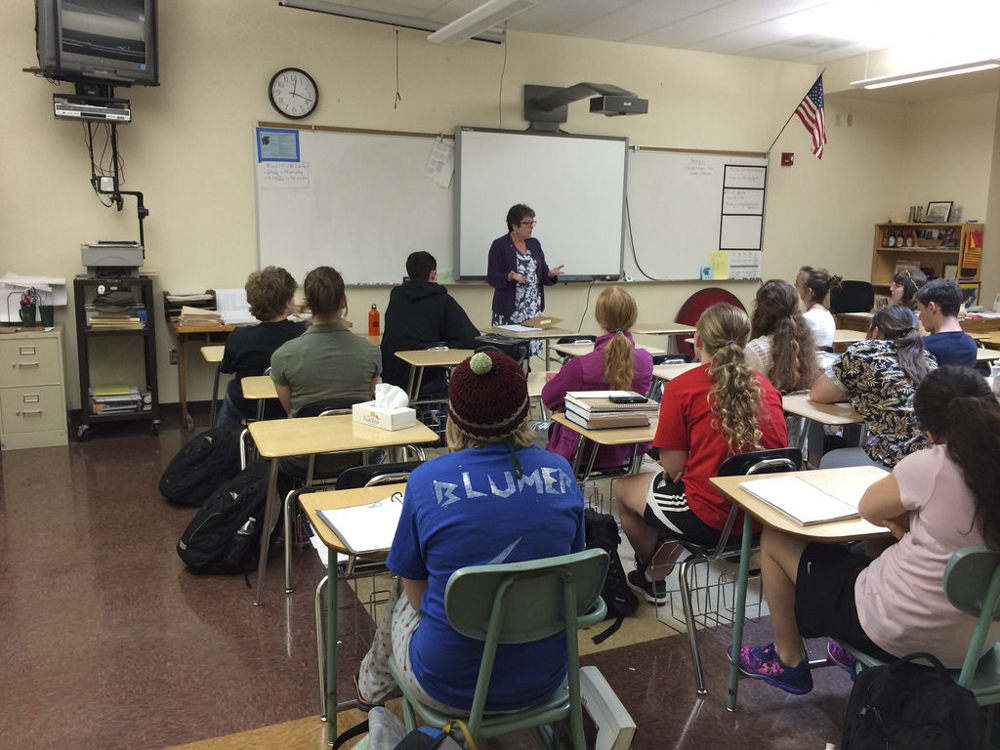
The Massachusetts Board of Elementary and Secondary Education unanimously voted against arming teachers with firearms Tuesday in an effort to take a stand against President Donald Trump’s administration’s push to arm educators in schools.
The resolution has no regulatory power, but is instead meant to send a message that arming teachers is not in the state’s best interest, said Paul Sagan, the chair of the Massachusetts Board of Elementary and Secondary Education.
Sagan said although the Board typically only makes regulatory decisions, members felt it was necessary to make a statement in light of Trump’s call to action and the recent shooting at Marjory Stoneman Douglas High School in Parkland, Florida.
“… there was obviously a proposal from Washington, from the president, that we should now arm teachers, and we all felt very strongly that that was a mistake and not something that should be done — certainly not in Massachusetts schools,” Sagan said. “We thought it was very important to state to the community here that we would oppose such a policy or a practice.”
The Board made the decision because they were concerned about students’ wellbeing, he said. Members felt as though arming teachers would not be a beneficial safety precaution for students, nor would it resolve the issue of violence in schools.
The Board’s statement, which will not put any regulations into place, is intended as a way to officially state the Board’s position on the matter for the understanding of superintendents, law enforcement officers and school security officers whose jobs concern students’ safety, Sagan said.
“… We are on the side that schools should have safety officers who are trained appropriately, where they feel they can add security and value … and teachers should be about teaching,” Sagan said.
Meredith Barry, 24, of Fenway, said introducing guns in the classroom would only lead to more violence.
“We shouldn’t have teachers needing to have guns in order to protect themselves,” Barry said. “I mean, personally, I just think teachers don’t get paid enough as it is, so why do we need to make their lives harder?”
Barbara Madeloni, president of the Massachusetts Teachers Association, said in a statement that using violence to prevent violence is not the answer to gun brutality.
“The president’s suggestion that we arm educators is simply outrageous,” Madeloni said. “It reflects a bizarre commitment to violence as the answer to problems … The students organizing to end gun violence and the educators who are joining them have committed to a more peaceful world. That is a message and struggle we should all take up.”
Shea Cronin, a professor of criminal justice at Boston University, said if the Board unanimously agreed on such a concern, it is important to place value in their words.
Cronin said he could not teach effectively if given a firearm, as it would require a constant awareness that should be reserved for law enforcement officers who are trained to do so.
“I don’t believe there’s any benefit in arming teachers, and if there were some benefit in terms of school safety, there’s a great deal of risk and potential costs associated with having that many people with firearms in a school,” Cronin said.
The decision to arm teachers would also negatively impact students, he said, constantly reminding them of a “very inflated risk.”
Cesar Perez, 24, said arming teachers would negatively impact students and their learning capabilities.
“I don’t understand the concept of giving teachers guns,” the Dorchester resident said. “It’s like if you’re dealing with elementary school students or … middle schools students … you’re putting fear in children to even want to come to school.”
Malia French, 29, of Jamaica Plain, said the school system should find a less violent way to reduce gun deaths.
“We should definitely put more social workers and counselors and people who actually can help students who are troubled or who need some help [in schools] and get them the psychological resources we need versus arming teachers,” French said.














